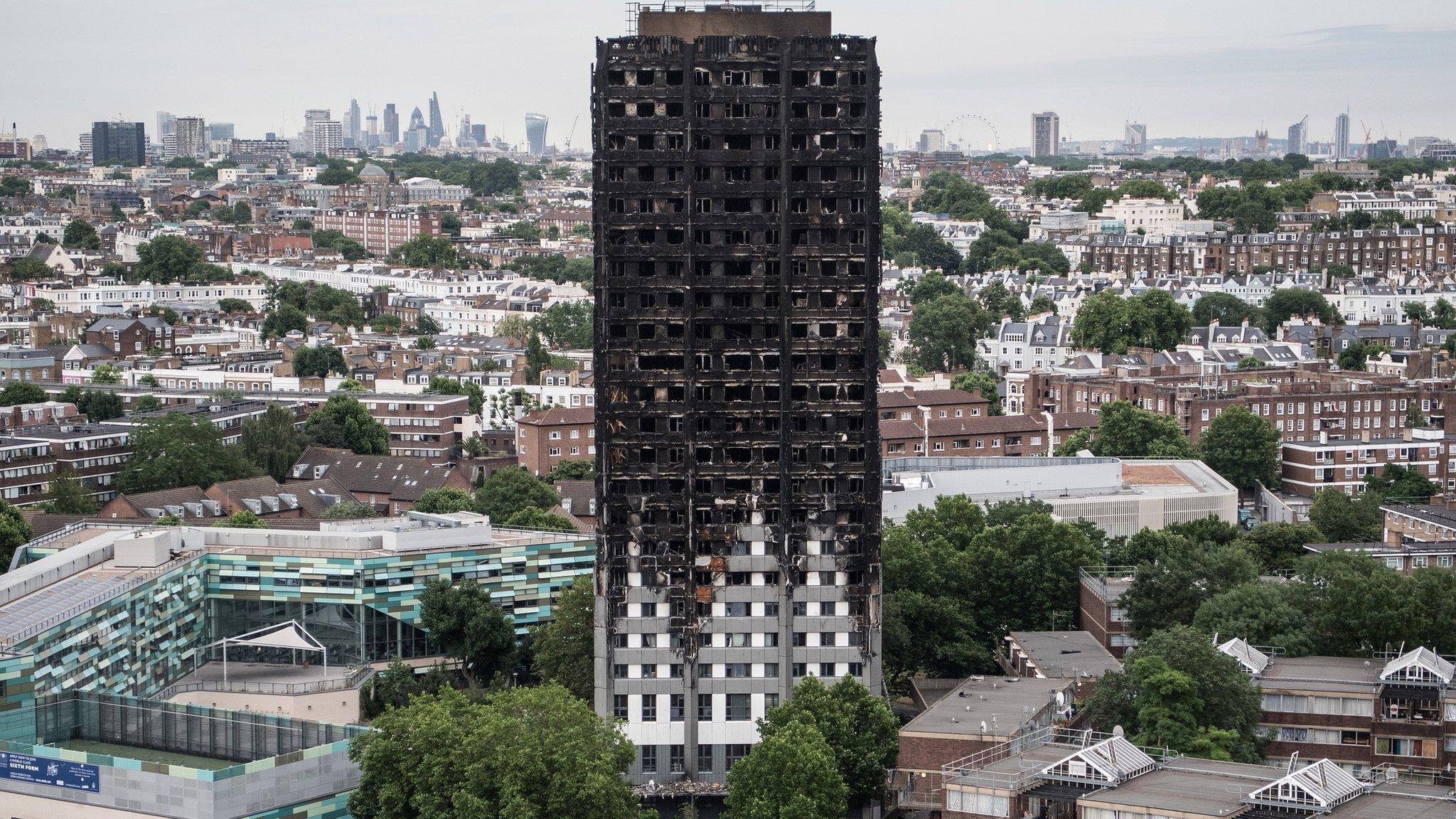London fire: Why don't we know how many died in Grenfell Tower?
- Published
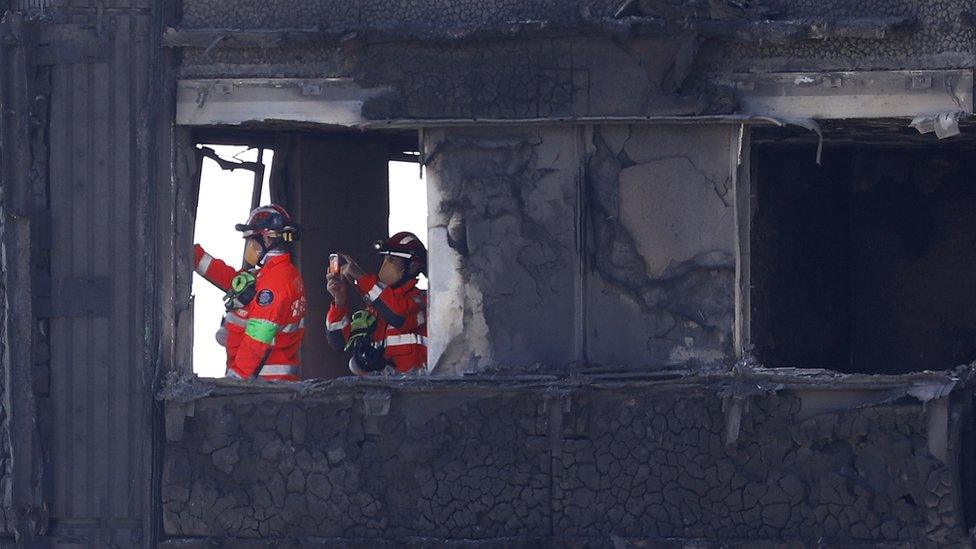
We assume that in our hyper-connected world, we can always access the information we need and track down the people we want to find.
But the tragedy at Grenfell Tower has thrown up a further horrible reality - two weeks on, the exact number of people who died is still unknown.
On Wednesday, Detective Superintendent Fiona McCormack announced that the number of dead and missing had risen to 80.
She also gave the most detailed account yet of how the police are trying to establish numbers.
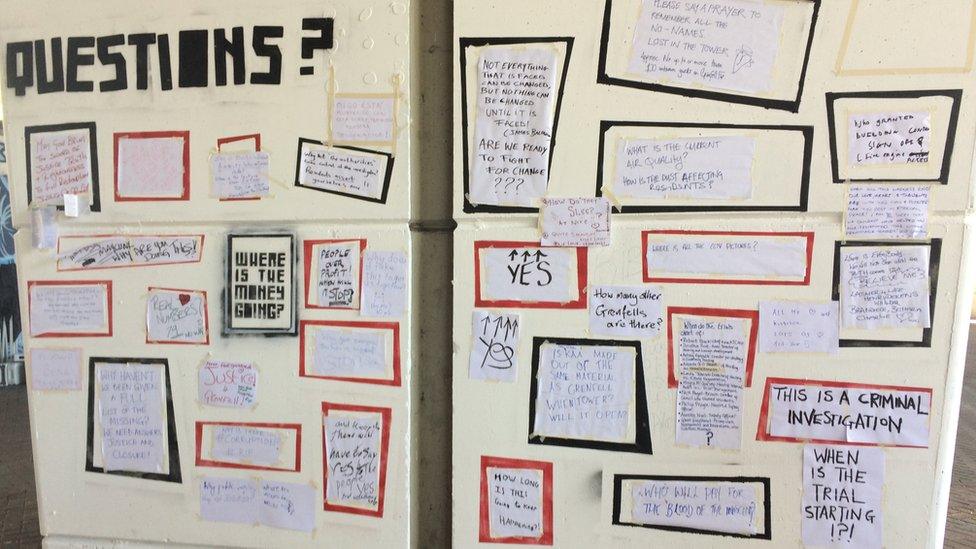
A wall of posters has appeared near the tower
Why is it so hard to arrive at a figure? Many of the details of the current investigation are being kept close to officials' chests, but we can combine what we do know and look at past incidents.
Missing
The first step is to set up a casualty bureau - a phone line the public can use to report people missing. The one for Grenfell Tower is on 0800 0961 233.
Police have been urging members of the public who know of people who are missing to get in touch and to put aside any reservations they may have about contacting the police.
But what about the people who aren't reported missing? This is much harder and in the case of Grenfell Tower the police say they are reviewing information from "all imaginable sources" to try to establish who was in the building that night.
The Tenant Management Organisation gave the police a list of tenants which turned out to contain inaccuracies. But in any case, it wouldn't have included visitors, many children or anyone illegally subletting. The electoral roll also helps to provide a picture, but again, not everyone living in the building or in each flat will be listed.
So the police turned to schools, nurseries, government agencies, even fast food delivery outlets. They asked residents about their friends and neighbours. And they used recordings of 999 calls made on the night of the fire.
Social media provides another source of intelligence. But this is like a jigsaw puzzle with so many people posting information about the missing.
With all these sources, if names are spelled differently or personal information is inaccurate, this can lead to confusion, delay and double-counting.
There is also often an international element, so the police will work with embassies according to a process supported by Interpol.
Counting bodies
The lack of clarity over the number of bodies still inside Grenfell Tower has caused great distress among the local community, with many questioning why this is the case.
The police say they have done a full visual search of every flat on every floor. However, they say, "utter devastation" in the building is making a full forensic search difficult.
"It will be dusty, they will be witnessing harrowing things and of course there are no working lifts, so you have to climb up by foot," said Colin Sutton, a former police senior investigating officer.
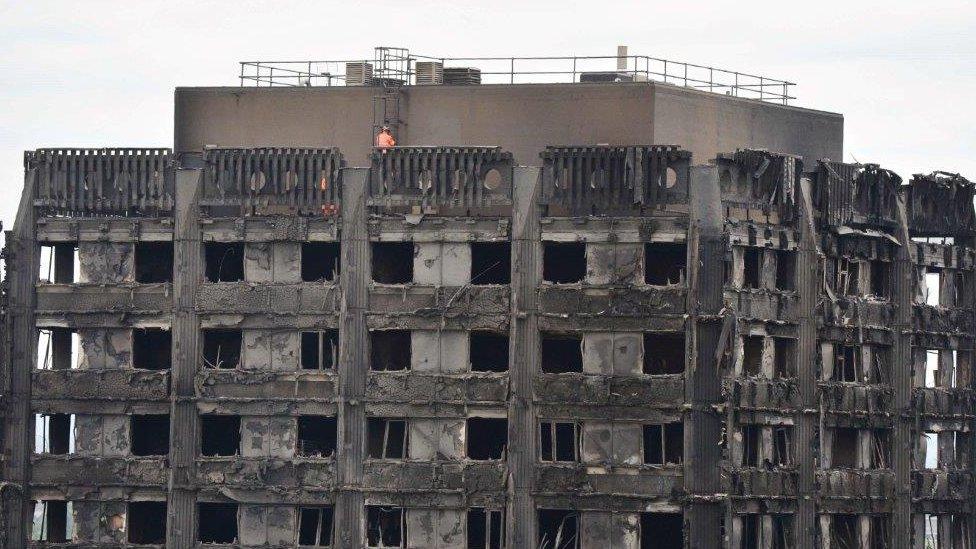
The ferocity of the fire itself makes it harder to recover remains and it is the police's view that there may be people who will never be recovered or identified.
Where it's possible, identification will take place at the scene, using visual identification and DNA.
It is the local coroner who leads the investigation and decides what evidence is required to identify people.
Cautious approach
Police are unwilling to estimate what the final number for those who died in Grenfell Tower will be, although Metropolitan Police Commander Stuart Cundy said he hoped it wouldn't be triple figures.
This has frustrated families, friends and residents who think the number will be much higher than the current number of confirmed missing and dead.
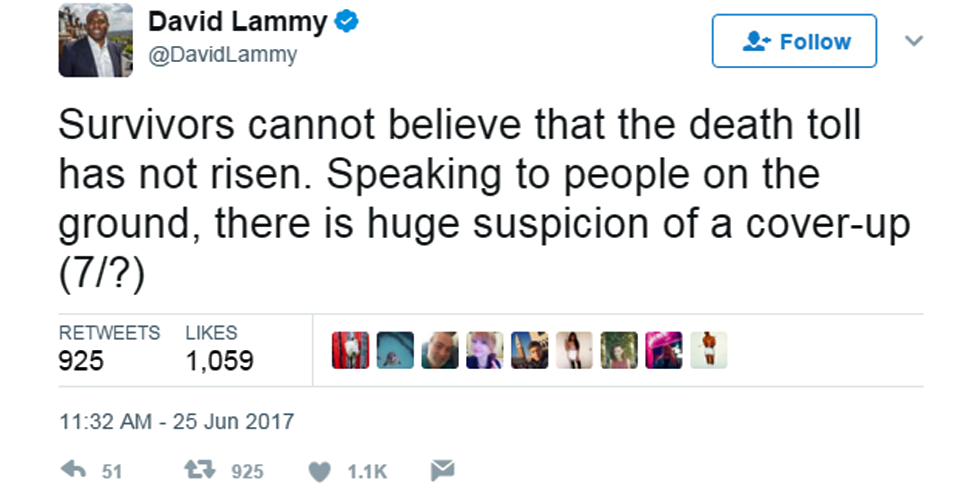
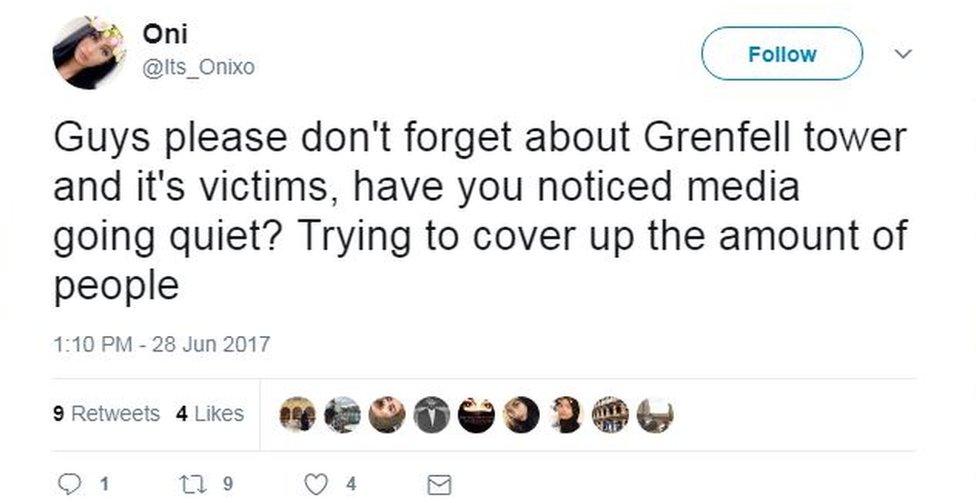
In previous serious incidents, British authorities have overestimated numbers so police say they now take great care to avoid doing this.
After the Paddington rail crash in October 1999, police said they thought 61 people were dead, however the final figure was 31. And two weeks after the Indian Ocean tsunami, external in December 2004, the government said 453 British people were "highly likely" to be lost. The final number of Britons confirmed dead was 149 (and thousands of others).
Overestimating numbers can cause undue alarm to families waiting to hear about loved ones and it can damage confidence in the police.
The media has also been criticised for simply repeating the police figures, which is common practice.
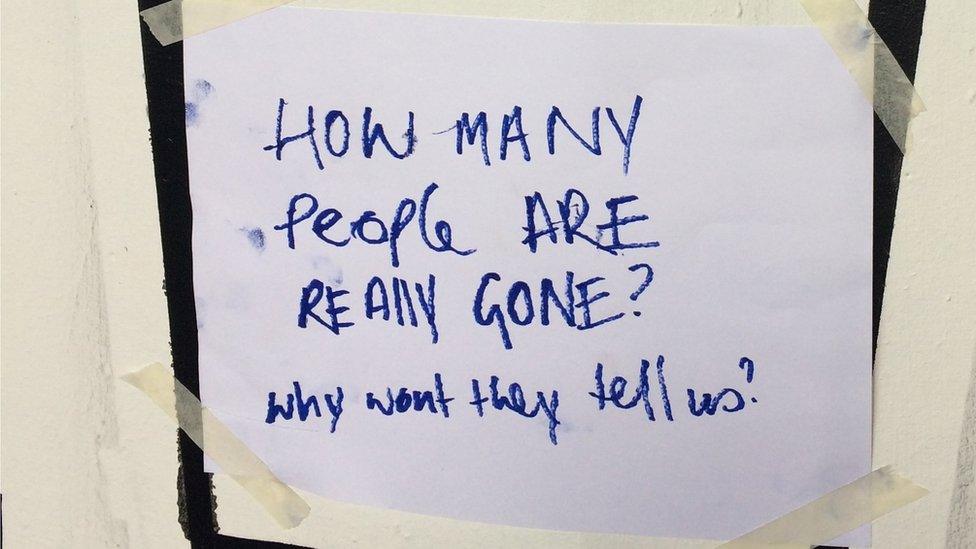
On the day the fire broke out, BBC News and other news organisations began to gather their own information to independently verify the numbers of victims and survivors.
On 16 June when the police said the official number of confirmed dead was 30, the BBC estimated the number of dead and missing to be more than 70.
Police say the search and recovery process at Grenfell Tower will take at least until the end of the year and the identification process will take even longer.
So far, they say they have spoken to at least one person from 106 of the 129 flats in the building. But there are still 23 flats where they "presume no-one survived".
- Published29 June 2017
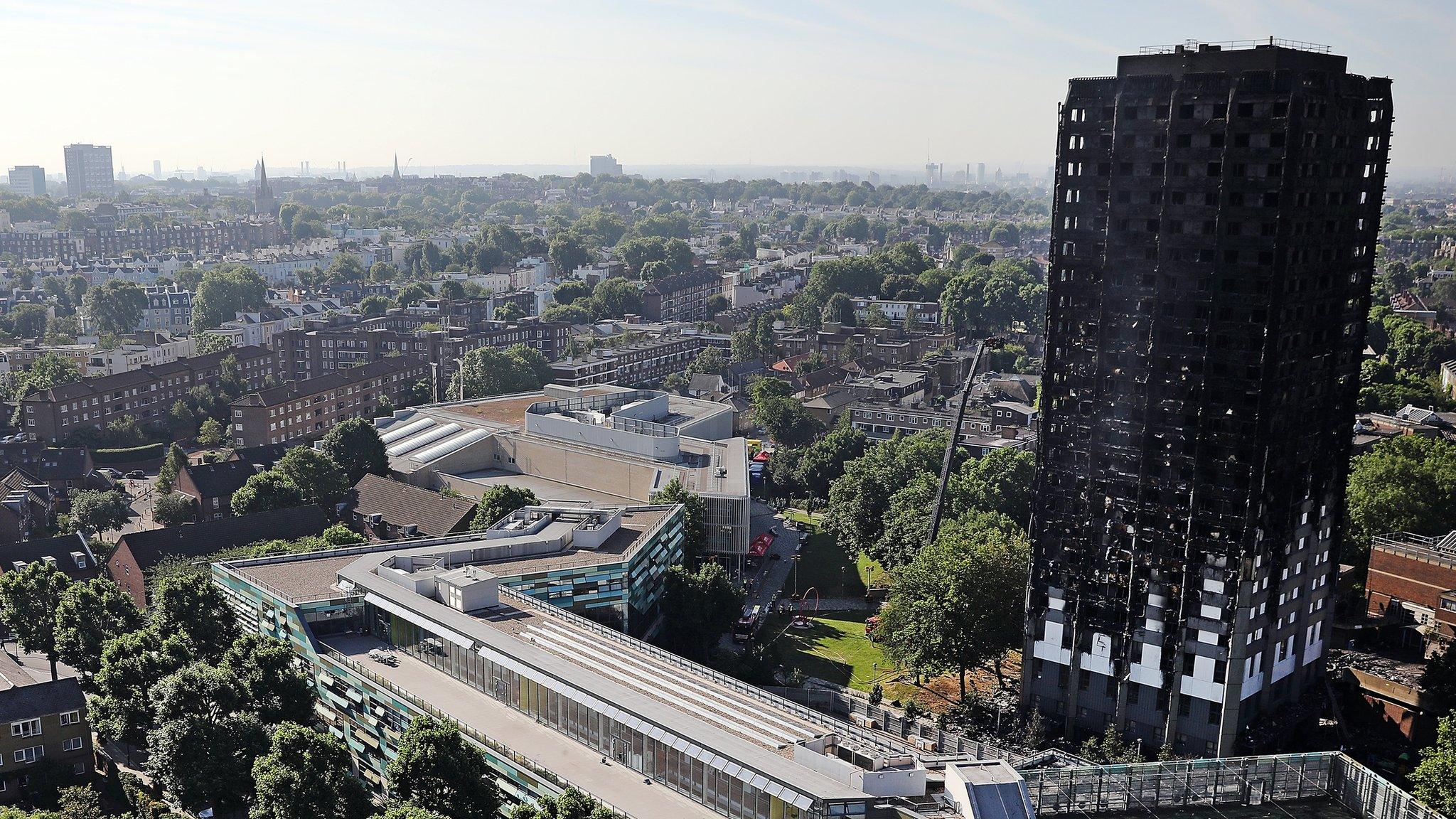
- Published29 October 2019
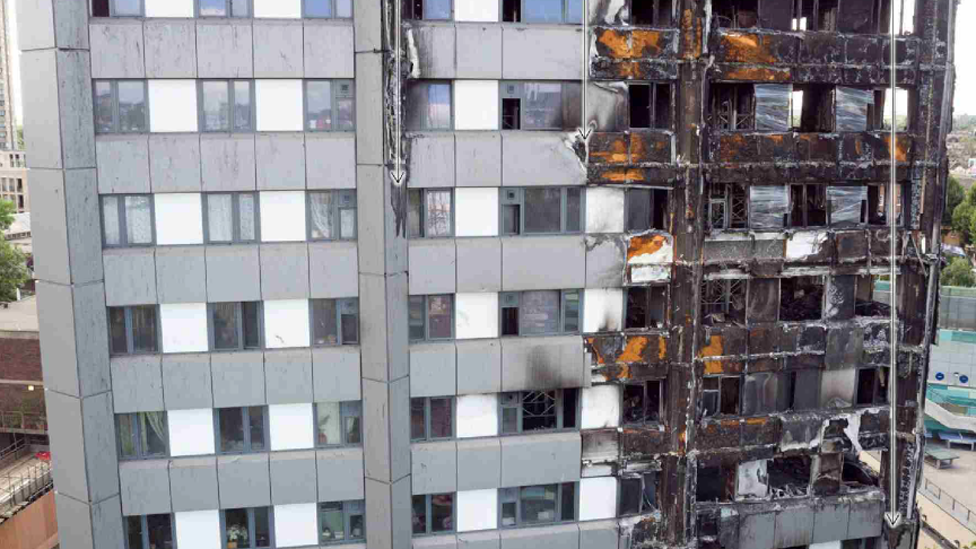
- Published28 June 2017
